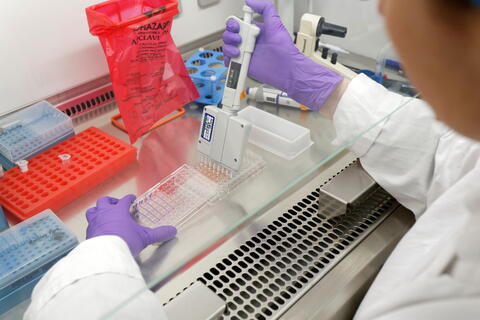
Trainings
Doctoral training at the ED3C is mainly based on training through research, in the laboratory, in seminars and scientific meetings linked to laboratory life, as well as in the framework of the Scientific Days and the Roscoff Colloquium organised by the Doctoral school. However, it cannot be limited to the training through research and must take into account other dimensions of the doctoral formation. This additional training, which is part of a pluralist approach, should enable doctoral students to acquire new skills with a view to pursuing their careers, whether in the academic world or not.
The ED3C recommends that each doctoral student complete a total of 90 hours of training during the course of their thesis. This training can be of various types: professional, scientific, practical, etc. . This requirement aims to support the research projects of the doctoral students and the development of their professional projects.
The training we recommend for doctoral students include in particular:
- Cross-disciplinary training offered by the doctoral colleges of the three co-accredited universities (information available on the websites of the ED and the doctoral schools).
- Training in the specific techniques required to carry out the doctoral project (summer schools, Master's teaching units, accreditation of animal experiments, etc.).
- Attendance at scientific meetings, counted at 6 hours per day, with an additional 6 hours for oral or poster presentations.
- FLE, counted for a total of 12h.
- Training related to the doctoral mission (teaching, promotion and dissemination of research, expertise), with the exception of teaching hours carried out as part of doctoral teaching missions.
- Legally required training in ethics and scientific integrity.
With the exception of scientific meetings and FLE, the number of hours counted will strictly correspond to the actual duration of the course attended. All training courses must be declared on ADUM and accompanied by a certificate of attendance (to be submitted in PDF format on ADUM).
This measure applies to doctoral students enrolled in their 1st year at the beginning of the academic year 2024-2025 and does not concern doctoral students enrolled in their 2nd year or higher at the beginning of the academic year 2024-2025.
Training courses should not be chosen at random in order to fulfil an obligation imposed by the doctoral school. On the contrary, they must be adapted to the individual needs and professional plans of each person. The development of the training plan is an opportunity to initiate a reflection between the PhD student and his/her supervisor on the professional objectives of the student and the knowledge and skills that he/she needs to acquire in order to achieve them. In fact, we find that the career plans of doctoral students at the beginning of their doctoral studies most often boil down to "being a post-doc", even though this activity can only be temporary by definition, and that only a limited number of PhDs in an age group obtain a permanent position in academia or research.
In compliance with the decree of 25 May 2016, a "Doctoral Training Agreement" is established at the begining of the thesis and can be revised every year at the time of re-registration. Doctoral students are also required to compile and keep up to date a 'Portfolio of Training Courses Completed'. The Portfolio is now online. The PhD student must provide information on the attended training courses on his/her ADUM account.
During the meetings of the Thesis Monitoring Committee (CSI), the PhD student must present a list of the training courses attended and report on the training courses planned up to the defence.
Doctors, pharmacists, psychologists working in clinical practice, and more generally doctoral students working in a professional capacity, are exempt from additional training other than training in scientific integrity and research ethics, which is compulsory for all doctoral students.
